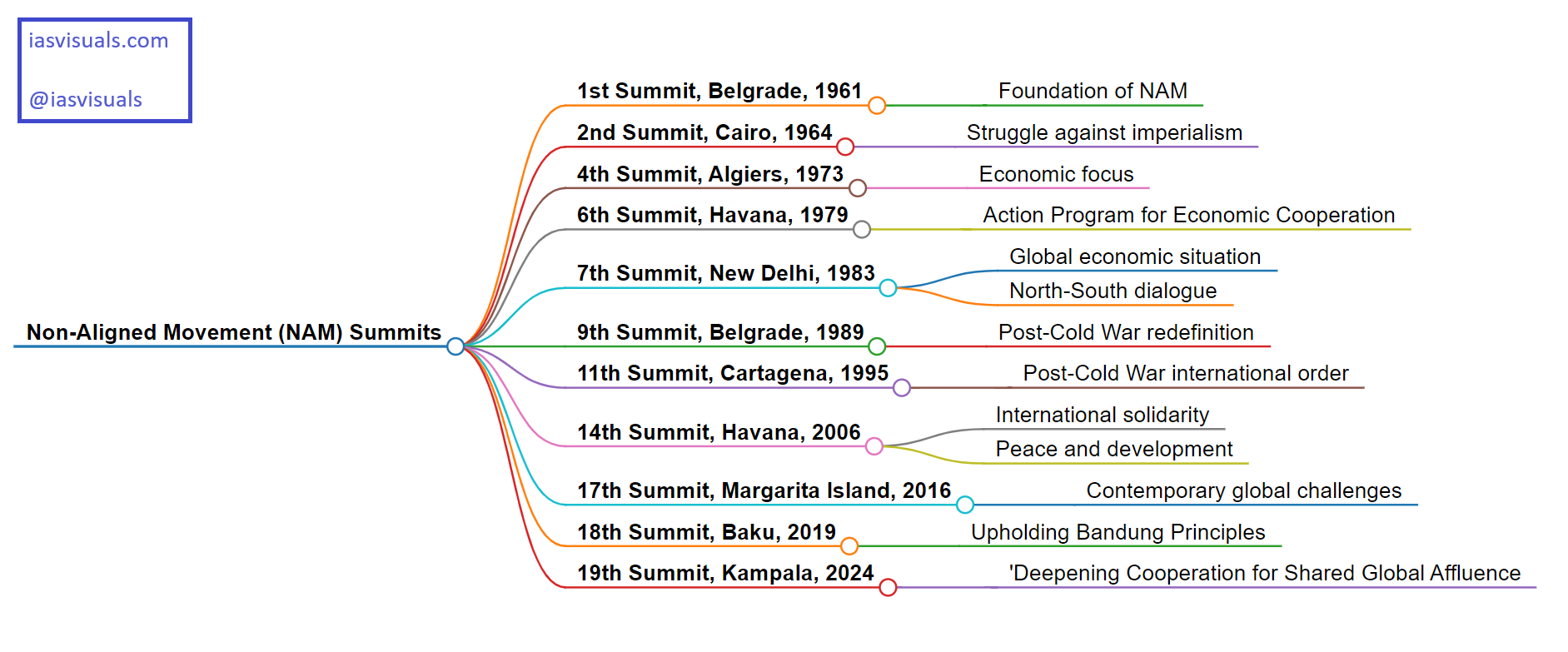NAM has held numerous summits since its inception, which serve as its principal forums for policy formulation and coordination among member states. Below is a list of some of the most important and landmark summits in the history of the NAM:
- 1st Summit, Belgrade, Yugoslavia (1961): The inaugural summit where the NAM was officially founded, establishing its principles and setting the stage for future action.
- 2nd Summit, Cairo, Egypt (1964): This summit emphasized the struggle against imperialism and colonialism, reinforcing the movement’s commitment to national independence.
- 4th Summit, Algiers, Algeria (1973): The Algiers summit is notable for its economic focus, particularly on issues of economic development and cooperation among developing countries.
- 6th Summit, Havana, Cuba (1979): The Havana summit is significant for the adoption of the “Action Program for Economic Cooperation” and marked a period of closer alignment with the Soviet Union for some members.
- 7th Summit, New Delhi, India (1983): This summit focused on the global economic situation and the North-South dialogue, highlighting the economic challenges facing developing countries.
- 9th Summit, Belgrade, Yugoslavia (1989): Coming at the end of the Cold War, this summit was pivotal in redefining the movement’s goals in the changing global context.
- 11th Summit, Cartagena, Colombia (1995): This summit addressed the post-Cold War international order and the role of the NAM in promoting peace and development.
- 14th Summit, Havana, Cuba (2006): The Havana summit revisited many of the movement’s core issues, including international solidarity, peace, and economic development, in the 21st century.
- 17th Summit, Margarita Island, Venezuela (2016): Focused on peace, sovereignty, and solidarity for development, this summit addressed contemporary global challenges, including climate change, terrorism, and economic disparities.
- 18th Summit, Baku, Azerbaijan (2019): The most recent summit as of my last update, where discussions centered on upholding the Bandung Principles to ensure peace, security, and development in a multipolar world.
These summits reflect the evolution of the NAM’s priorities and strategies in response to global political and economic changes. They have been crucial in enabling member states to articulate collective positions on international issues, promoting solidarity, and striving for a more equitable world order.

